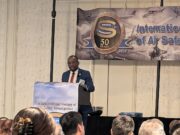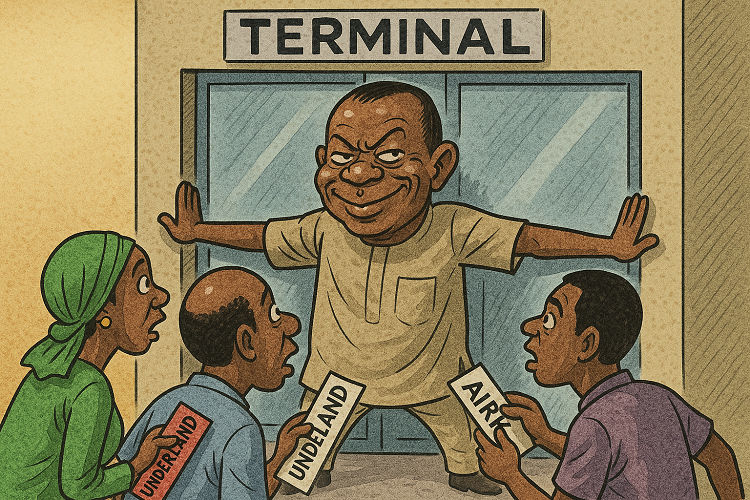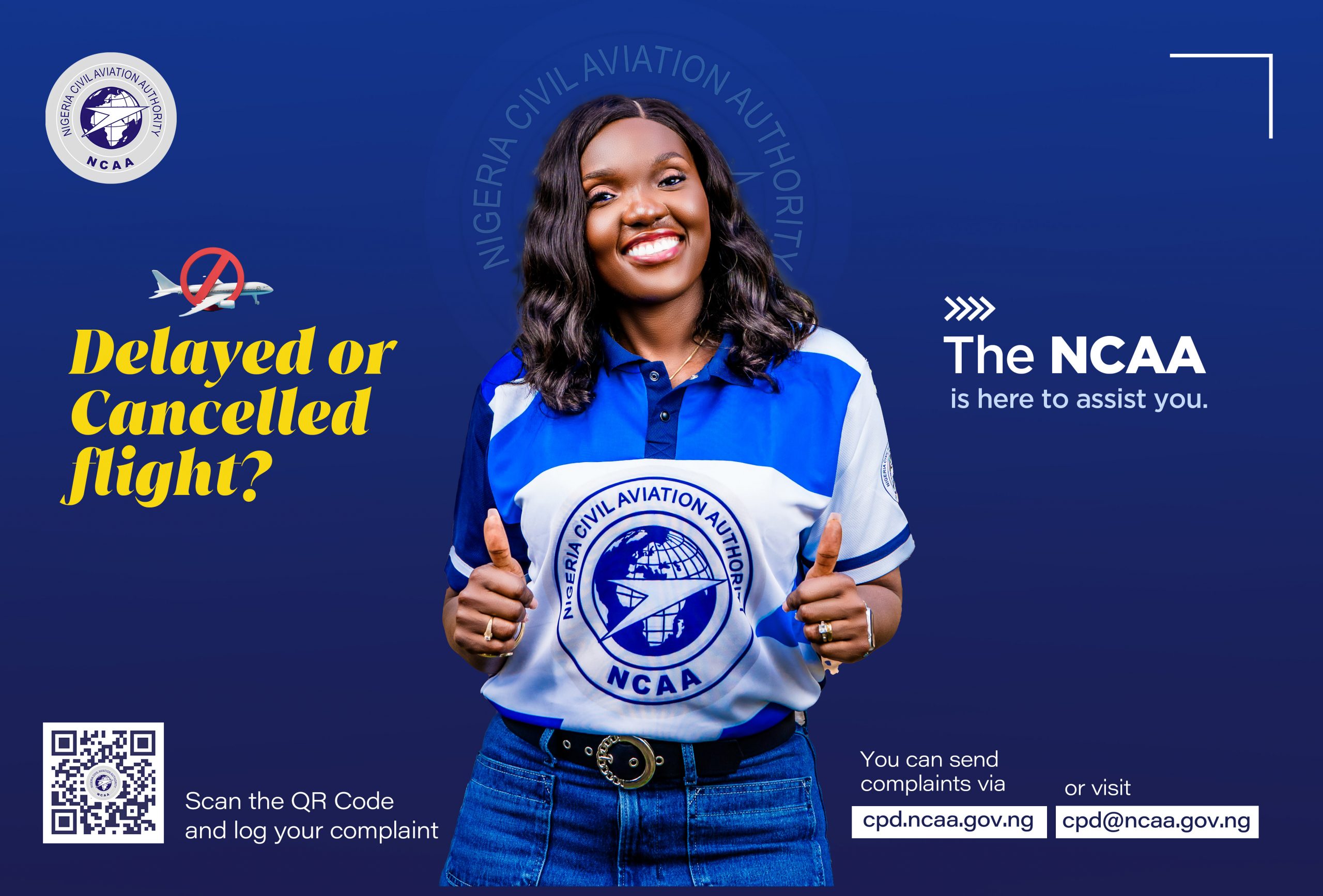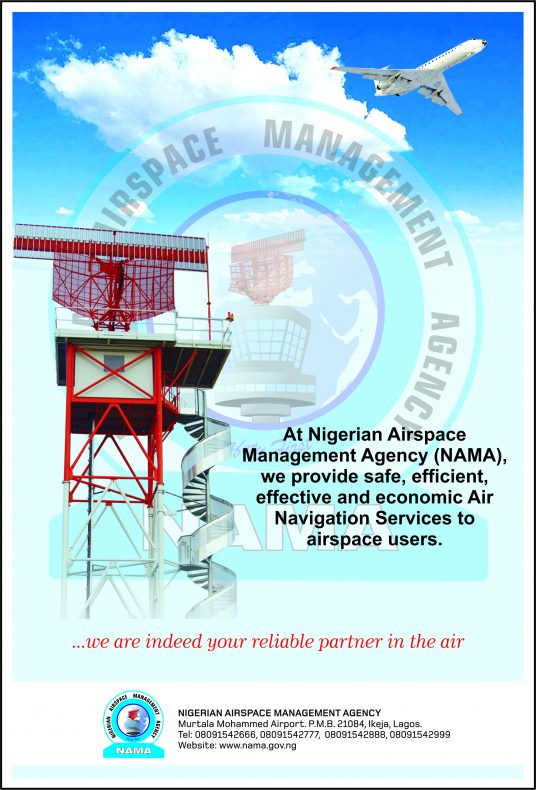Senator Oshiomhole’s airport clash with Air Peace sparks debates on VIP unruly passenger misconduct and aviation safety. Despite claiming to defend the “little guy,” the senator flouted aviation rules. Minister Keyamo has ordered a probe, but Nigerians, especially the aviation community, are watching to see whether the punishment will match the offense or if this becomes another Animal Farm scenario. ANTHONY OMOH writes.
“All animals are equal, but some are more equal than others.”
— George Orwell, Animal Farm
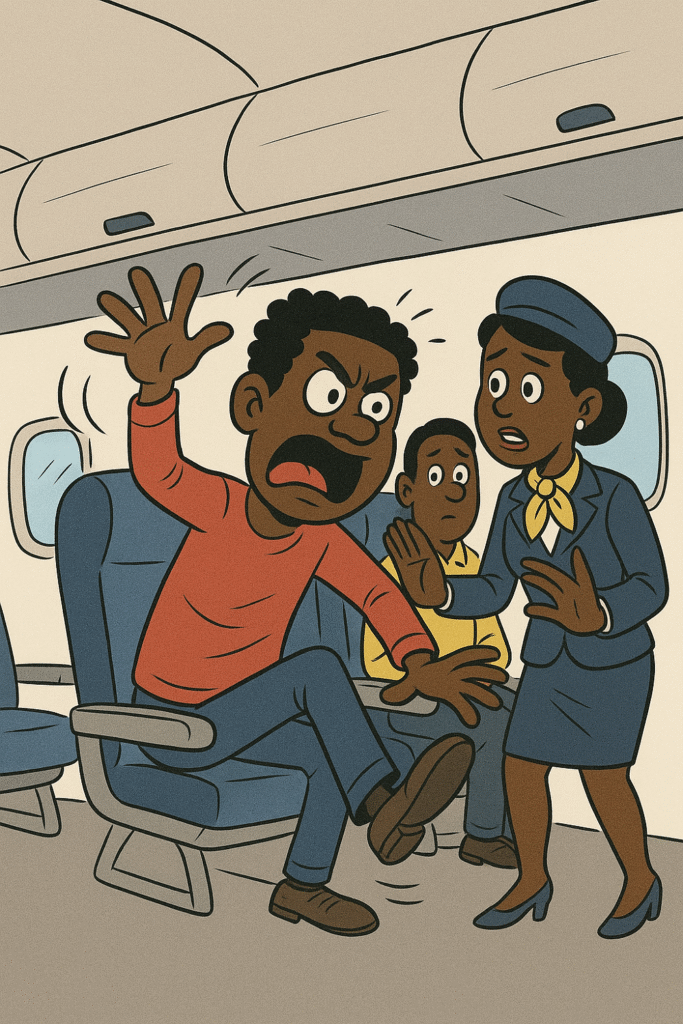
This famous line from Orwell’s dystopian classic finds uncomfortable relevance in Nigeria’s aviation space following a recentunruly passenger conduct at Murtala Muhammed International Airport (MMIA), Lagos, involving Senator Adams Oshiomhole.
The incident has reignited scrutiny of the sector’s unruly passenger conduct warning, highlighting deep concerns over the enforcement of aviation laws—especially when high-ranking individuals are involved.
What began as a missed flight by the former Edo State Governor on June 11, 2025, escalated into a disruption at the terminal’s Zulu wing, delaying multiple departures and sparking national debate about accountability, operational integrity, and VIP impunity.
The fallout from the incident continues to ripple across the industry, raising fundamental questions about unruly passenger behavior, enforcement of regulations, and whether Nigeria’s aviation authorities are prepared to uphold safety over status.
According to Air Peace, the incident unfolded when Senator Oshiomhole arrived at the airport at 6:10 a.m. for Flight P47120 to Abuja, scheduled to depart at 6:30 a.m.
Airline representatives confirmed that check-in and boarding had already closed, in line with standard aviation safety timelines and the Nigeria Civil Aviation Regulations (Nig. CARs), which require boarding to close at least 15 minutes before takeoff.
Rather than accept the missed departure, the senator reportedly confronted airline staff and proceeded to climb onto a baggage conveyor belt, physically blocking check-in access for other passengers scheduled to depart on subsequent Air Peace flights.
The airline’s statement characterized his actions as aggressive, disruptive, and in clear violation of aviation safety protocols.
The consequences of this unruly passenger conduct were immediate. Dozens of passengers on later flights were delayed or rerouted.
Air Peace stated that the aircraft to Abuja eventually left with over 30 vacant seats, not due to overbooking as insinuated by the senator, but because the boarding process had to be halted due to the disturbance.
The airline, known for enforcing punctuality, also denied accusations of extortion or discriminatory treatment.
It clarified that no new tickets were sold at the counter after check-in closed and invited the senator to provide evidence if indeed any passenger was forced to pay twice.
In his own public comments, Senator Oshiomhole countered the airline’s account, alleging that he had checked in online and arrived at the terminal in time to board.
He claimed that his aide had been allowed onto the aircraft while he was barred entry, and that other passengers, including a mother with an infant, were unjustly denied boarding or allegedly asked to pay additional fees. He framed the airline’s actions as not merely strict, but punitive.
“I was at the airport on time. This wasn’t enforcement; this was extortion,” Oshiomhole told reporters upon his arrival in Abuja. “This is not the first time Air Peace is doing this to passengers.”
His version of events, however, clashed with both aviation regulations and the airport surveillance timeline, according to internal sources. Nig. CARs Part 17, which addresses “Unruly and Disruptive Passengers,” defines misconduct to include obstructing boarding gates, damaging equipment, or using intimidation to influence boarding decisions. Section 17.4.1 of the regulation stipulates that such conduct may attract a ban from future flights, monetary penalties, and even arrest.
A senior airport official who witnessed the incident but spoke on condition of anonymity explained that the response as an unruly passenger was soft due to Oshiomhole’s profile. “If any regular passenger had jumped on a conveyor belt and blocked others from checking in, he would’ve been arrested instantly. But when it’s a VIP, suddenly it’s a negotiation.”




